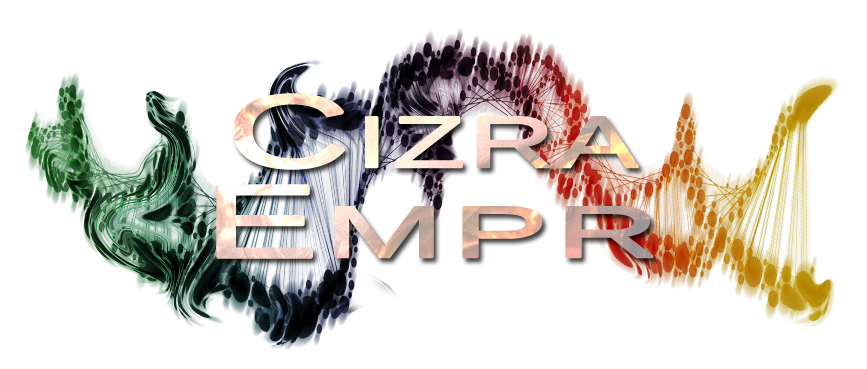Shock gripped Ndakala and, to a far greater extent, the delicate sensibilities of the lady in white, although her pristine linen garments were now an ochre-tinged memory. He, meanwhile, found respite, briefly, in his ancestors’ native tongue. How the determined young woman knew it—amongst an abundance of other languages that dripped from her tongue as drops off a boaboa tree after a monsoon, several of which he was certain died with their last speakers a generation ago—was, to him, a riddle not well-suited to a solution. Najwa Moghadani’s linguistic artistry aside, he was not prepared for what followed whence he sat in the driver’s seat of the jeep, started the engine, and pressed down on the accelerator—neither was his captive, Lydia Benson. No, we are both refugees of fate, he justified as guilt hung in his chest, its intensity inflected more sharply in recognition of the deception he undertook.
This is necessary to our survival.
Was it, really, though? Half-thought, the malformed question cast a shadow on the wall of his mind. Why should he believe anything the wild girl—a stranger—said? Because she put him at ease by speaking Xhosa? Xanathan would have to conclude they were harmless passersby,; Lydia Benson alone on her name recognition as an interfering philanthropist.
Still, there were the rumors. No, not just rumors. Reports from those he trusted. Images seen by his own eyes.
When they felt the situation called for it, Xanathan were brutal.
Ndakala’s mind drifted a moment to the XSF convoy and he knew, without a doubt, that whoever did it were just as brutal; moreover, he sensed this young woman was somehow involved.
“Fate guide us safely on our journey,” he recited, decision made.
The jeep lurched forward and, inexplicably, downward. The ground gave way beneath them, not with violence, but as easily as one succumbs to water having given up their last breath. Darkness enveloped them, and he clicked on the lights. They were filthy, coated in dust from the hours driving across sun-hardened savanna and rocky terrain, but nevertheless served their purpose. The tunnel around him illuminated, he drove in grim silence without taking even a moment to glance at his passenger—still in shock, although her breathing was less frenetic as time went on—lest some momentary lapse in attention result in his personal peril.
An hour later, the harsh glint of the afternoon sun stung his eyes as jeep emerged from the unnatural tunnel and into the midst of a strange compound. Armed guards were standing at the ready, waiting for him. Young men with eyes that were older than they ought. The eyes of those who were prepared to kill. The only reasonable thing to do was cut the engine.
“Miss Benson, this is the end of the road for now.”
“This isn’t Phalaborwa,” she protested, but it was a defeated type of whine, a sighed exclamation wherein she recognized she would not make it to where she wanted to go, at least, not on a timeline of her choosing.
This is necessary to our survival.
Was it, really, though? Half-thought, the malformed question cast a shadow on the wall of his mind. Why should he believe anything the wild girl—a stranger—said? Because she put him at ease by speaking Xhosa? Xanathan would have to conclude they were harmless passersby,; Lydia Benson alone on her name recognition as an interfering philanthropist.
Still, there were the rumors. No, not just rumors. Reports from those he trusted. Images seen by his own eyes.
When they felt the situation called for it, Xanathan were brutal.
Ndakala’s mind drifted a moment to the XSF convoy and he knew, without a doubt, that whoever did it were just as brutal; moreover, he sensed this young woman was somehow involved.
“Fate guide us safely on our journey,” he recited, decision made.
The jeep lurched forward and, inexplicably, downward. The ground gave way beneath them, not with violence, but as easily as one succumbs to water having given up their last breath. Darkness enveloped them, and he clicked on the lights. They were filthy, coated in dust from the hours driving across sun-hardened savanna and rocky terrain, but nevertheless served their purpose. The tunnel around him illuminated, he drove in grim silence without taking even a moment to glance at his passenger—still in shock, although her breathing was less frenetic as time went on—lest some momentary lapse in attention result in his personal peril.
An hour later, the harsh glint of the afternoon sun stung his eyes as jeep emerged from the unnatural tunnel and into the midst of a strange compound. Armed guards were standing at the ready, waiting for him. Young men with eyes that were older than they ought. The eyes of those who were prepared to kill. The only reasonable thing to do was cut the engine.
“Miss Benson, this is the end of the road for now.”
“This isn’t Phalaborwa,” she protested, but it was a defeated type of whine, a sighed exclamation wherein she recognized she would not make it to where she wanted to go, at least, not on a timeline of her choosing.
